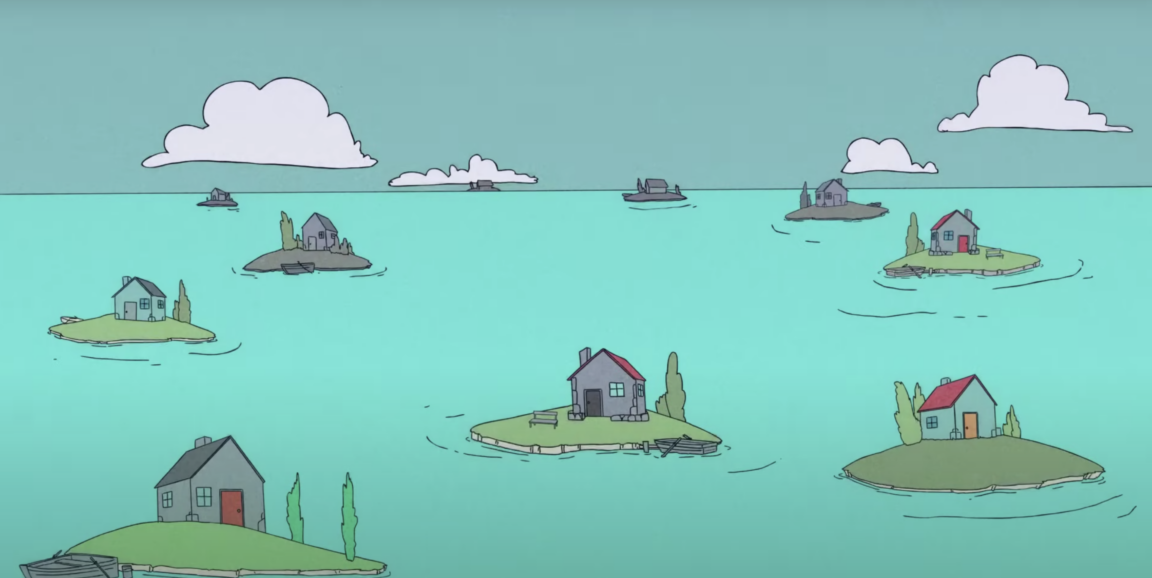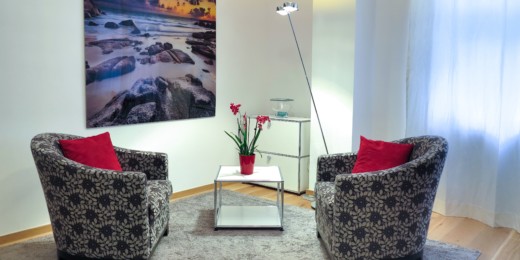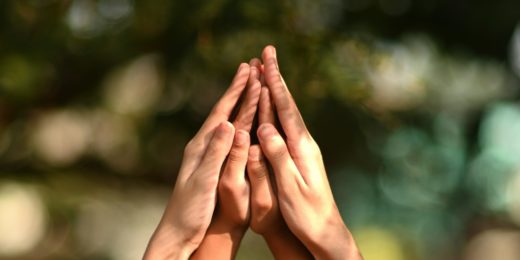It can happen due to stimuli from the analog world or the digital world. It can target those who are young, middle-aged or getting up there in years. The human emotion we call loneliness doesn't discriminate -- and it's particularly virulent during the holiday season.
A new animated video created by Maya Adam, MD, takes on that often unspoken truth. In it, three characters depict their unique struggles with social isolation. But with encouragement from one another and a willingness to try something new, they build meaningful connections with other people and their own passions -- breaking through the lonely feelings.
"In our turbulent, post-pandemic era, loneliness and social isolation are major problems, and they can have a serious negative impact on our physical and mental health," Adam said. "Some research suggests that social isolation and loneliness can be as bad for our long-term health as smoking or physical inactivity."
In May, U.S. Surgeon General Vivek Murthy declared loneliness a public health crisis and epidemic, as approximately half of U.S. adults reported measurable levels of loneliness even before the onset of the COVID-19 pandemic. On Nov. 15, the World Health Organization announced a new commission on social connection to "address loneliness as a pressing health threat, promote social connection as a priority and accelerate the scaling up of solutions in countries of all incomes."
But according to Adam, research suggests that a key first step is making people aware that loneliness is surprisingly common. "It may actually help people to cope with these feelings," she said. "Taking small steps each day -- like reaching out to a friend, trying to stay as active as possible, and focusing on the things that matter to us -- these actions can also help people cope with feelings of loneliness."
Professor of psychiatry and behavorial sciences Anna Lembke, MD, who is also the medical director of addiction medicine, watched Adam's video with great understanding. We asked Lembke to explain how and why people feel lonely and how they can use evidence-based tools to increase feelings of connectedness.
What is loneliness, and what causes it?
Loneliness is a feeling of not being connected to other people, a community or a greater purpose. It's generally a place of sadness and despair, associated with helplessness and hopelessness. Loneliness has also been linked with suicide.
One thing Adam's video implies is that the internet, particularly social media, is contributing to growing reports of loneliness in modern culture. I agree. Don't get me wrong -- the internet can be a wonderful way to make meaningful human connections, especially for people who, by virtue of geography, disability or other barrier, otherwise cannot connect. But social media can also give the illusion of human connection where none exists.
What does the research on social media and loneliness show?
A study published in 2018 looked at measures of depression and loneliness in 143 University of Pennsylvania undergraduates, before and after limiting social media use (Facebook, Instagram, Snapchat) to 10 minutes per platform per day for three weeks. Compared with a control group, those who limited their social media consumption to no more than 30 minutes a day in total showed significant improvements in depression and loneliness, as well and anxiety and FOMO (fear of missing out).
We're seeing this in clinical care as well, not just among young people but among older people. One of our early clinical interventions to target depression and anxiety is to ask patients to limit their use of digital media, and we find that when patients reduce their screen time, mood and anxiety most often improve.
We also encourage patients to make connections in real life and, if possible, experience positive forms of human touch. Even something as simple as a handshake or a brief hug can make a difference. Of course this has gotten more complicated in a post-COVID world, but we are social creatures, and most of us do better with some physical contact to preserve feelings of connectedness.
Is it possible to feel lonely even when surrounded by other people?
When we're surrounded by other people, but still don't feel connected to them, it can generate even stronger feelings of loneliness. Feeling lonely when surrounded by people can contribute to feelings of shame and self-loathing, which then compound the loneliness.
One way to overcome loneliness in a crowd is to discover and express our authentic selves. To feel deeply connected to other people, we need to feel seen and loved for who we really are. Otherwise, we can experience what psychoanalyst Donald Winnicot called the "false self," where others see a projected and often idealized version of ourselves which can prevent true intimacy.
It's also important to keep in mind that we can be alone and yet not feel lonely at all. Many more people today live alone than in prior generations, yet many of them don't experience significant loneliness. Those individuals are often deeply connected to someone or something, finding that living alone allows them to refuel and care for themselves before venturing out into the world.
Adam's video implies that physical activity is important in combatting loneliness. Can you explain the connection between movement and improved emotional well-being?
Dopamine, which is our reward neurotransmitter, is essential to movement . It's probably no coincidence that the same neurotransmitter involved in pleasure, motivation and reward is also involved in movement. Exercise can increase dopamine levels and make people feel good for a sustained period of time afterward. There's an overwhelming amount of evidence that physical movement improves emotional well-being; decreases symptoms of depression, anxiety and psychosis; and improves attention and sleep. I say to patients the best antidepressant and sleeping pill I can prescribe you is morning exercise.
What are some other ways people can assuage loneliness?
Experiencing nature, caring for an animal, creating art, being of service. We're all different and need different tools and tricks to combat loneliness. Whatever your path to feeling more connected, I recommend action. Don't be passive. Do at least one thing each day that makes you feel more connected to other people and the world.
Watch Maya Adam's video here.






